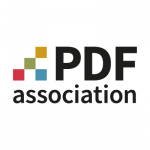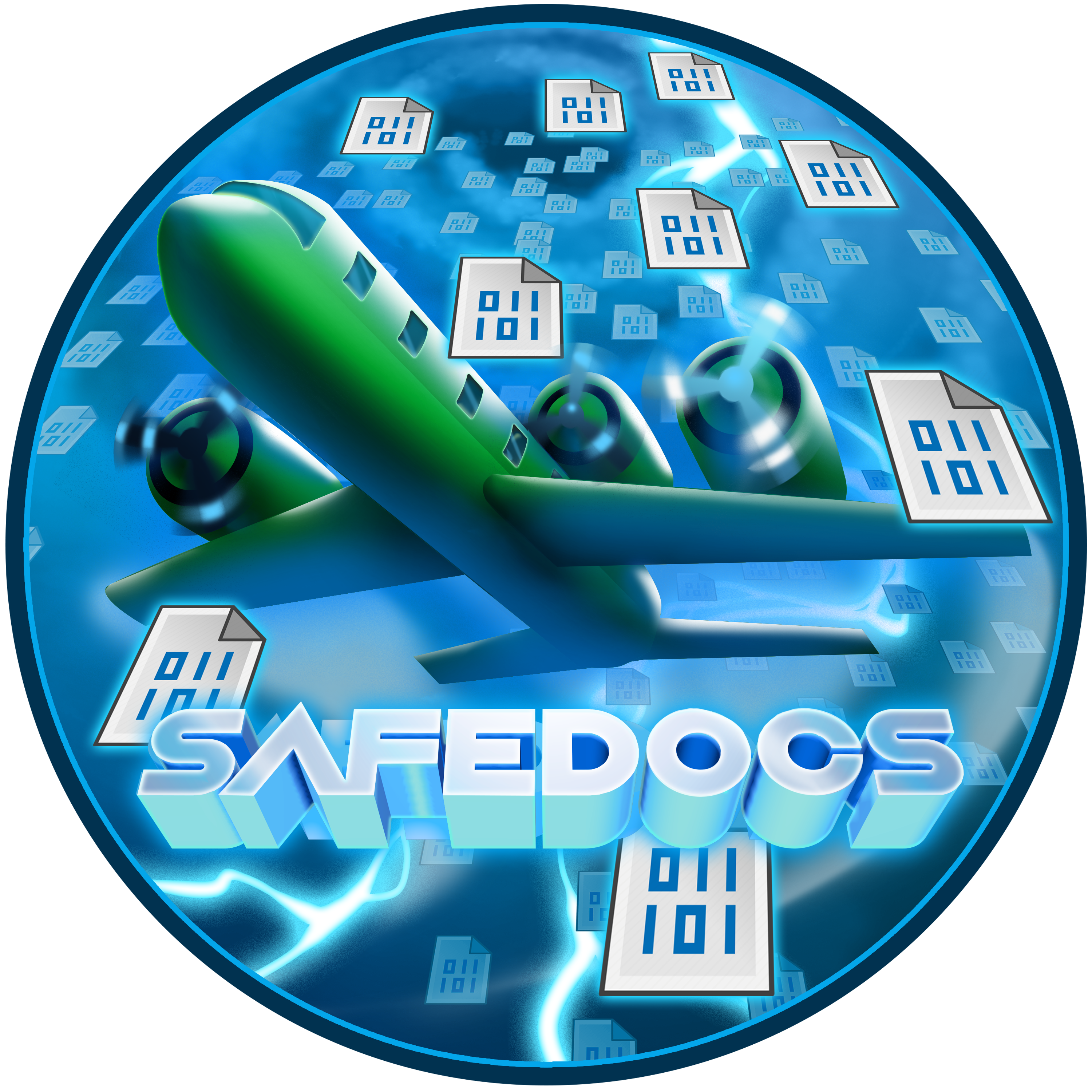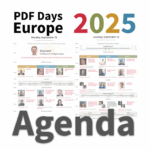UNSAFE-DOCS: a new SafeDocs Corpus including the Voice of the Offense

The PDF Association staff delivers a vendor-neutral platform in service of PDF’s stakeholders.


Following the release of the curated CC-MAIN-2021-31-PDF-UNTRUNCATED corpus, the UNSAFE-DOCS corpus contains over 5.0 million files collected by a team at NASA’s Jet Propulsion Laboratory (JPL) or synthetically generated by Kudu Dynamics’ “Voice of the Offense” (VoO) team for the Defense Advanced Research Project Agency (DARPA)’s SafeDocs Program.
The common-crawl component of the UNSAFE-DOCS corpus (over 3.9 million PDF files as collected by a team at NASA’s Jet Propulsion Laboratory (JPL)) includes some truncated PDF files, as described in the paper “Building a Wide Reach Corpus for Secure Parser Development" by Allison et al ([slides] [paper]). This component was utilized within the SafeDocs program as the starting point for many generated files, as discussed below, and as the Program’s evaluation corpus. It was later expanded and improved to become CC-MAIN-2021-31-PDF-UNTRUNCATED.
The UNSAFE-DOCS datasets
The UNSAFE-DOCS corpus contains file and streaming formats used during the SafeDocs program research, Hackathon, and Evaluation events. The folders are within the set of zip files posted on digitalcorpora.org:
common-crawl
- This collection of common-crawl-*.zip files contains more than 3.9 million PDFs from Common Crawl. Note that some PDFs were truncated by Common Crawl when fetched.
corpora-pdf
- This collection of corpora-pdf-*.zip files contains over 1.5 million "unsafe" PDF files
- The corpus was designed to achieve the necessary diversity and complexity, providing a representative baseline for the assessment of both performer-created parsers and extant PDF parser security. The PDF files leverage three unique sources developed by the SafeDocs TA3 performer, Kudu Dynamics, for the creation of malformed PDF files that may exhibit potentially dangerous behavior in the anti-pattern known as a “shotgun parser”:
- Synthetic and real-world PDF files that resulted in unique call paths through various extant parsers identified by Google’s AFL security-oriented fuzzer;
- Synthetically modified real-world PDF files malformed by a directed PDF semantic- and grammar-aware tool; and
- Synthetically malformed real-world PDF files with byte sequences randomly modified by a PDF syntax-aware tool.
corpora-video
- This collection of corpora-video-*.zip files contains corpora for several streaming video formats.
corpora-icc
- corpora-icc.zip contains corpora for ICC color profiles
corpora-nitf-01 and corpora-nitf-02
- corpora-nitf-01.zip and corpora-nitf-01.zip files contains corpora for the National Imagery Transmission Format (NITF) file format
UNSAFE-DOCS corpora structure
The folder structure of the UNSAFE-DOCS corpus consists of the following:
- common-crawl – This folder contains an initial extraction of 3,953,920 PDFs from Common Crawl. Note that some PDFs were truncated by Common Crawl when fetched.
- corpora-pdf
- corpora-pdf/hackathonOnePrep – Corpus used to prepare for the study of the PDF format and PDF parsers before SafeDocs Hackathon 1 (December, 2019).
- corpora-pdf/hackathonOne – Corpus used for the study of the PDF format and PDF parsers during SafeDocs Hackathon 1 (December, 2019).
- corpora-pdf/evalOne – Corpus used for the study of the PDF format and evaluation of safe PDF parsers during SafeDocs Evaluation 1 (March, 2020).
- corpora-pdf/hackathonTwo – Corpus used for the study of the PDF format and PDF parsers during SafeDocs Hackathon 2 (July, 2020).
- corpora-pdf/evalTwo – Corpus used for the study of the PDF format and evaluation of safe PDF parsers during SafeDocs Evaluation 2 (October, 2020).
- corpora-pdf/hackathonThree – Corpus used for the study of the PDF format and PDF parsers during SafeDocs Hackathon 3 (March, 2021).
- corpora-pdf/evalThree – Corpus used for the study of the PDF format and evaluation of safe PDF parsers during SafeDocs Evaluation 3 (June, 2021).
- corpora-pdf/evalFour – Corpus used for the study of the PDF format and evaluation of safe PDF parsers during SafeDocs Evaluation 4 (March, 2022).
- corpora-pdf/testPDFs – Corpus used for simple PDF testing of PDF parsers.
- corpora-pdf/TA3 – Corpus synthetically generated with various stressful malforms to study the PDF format and PDF parsers.
- corpora-pdf/issue_trackers – Corpus of PDF files retrieved from issue trackers for various PDF parsers. This data has been formalized into the previously-announced Stressful “Issue Tracker” corpus.
- corpora-pdf/common_crawl_cmin – Corpus of files from the common_crawl corpus that was minimized via afl-cmin and the poppler:pdftoppm binary.corpora-pdf/govdocs_cmin – Corpus of files from the Govdocs1 corpus that was minimized via afl-cmin and the poppler:pdftoppm binary.
- corpora-icc
- corpora-icc/hackathonFour – Corpus used to study the ICC format and ICC parsers during SafeDocs Hackathon 4 (Nov, 2021).
- corpora-icc/common_crawl – Corpus used to study the ICC format.
- corpora-icc/common_crawl_iccs – Corpus used to study the ICC format.
- corpora-icc/TA3 – Corpus synthetically generated with various stressful malforms to study the ICC format
- corpora-nitf
- corpora-nitf/hackathonFive – Corpus used to study the NITF format and NITF parsers during SafeDocs Hackathon 5 (Nov, 2022).
- corpora-nitf/nitf – Corpus used to study the NITF format and NITF parsers.
- corpora-nitf/nitf-bestof – Final collection of the best NITF corpus with stressful malforms.
- corpora-video
- corpora-video/hackathonThree – Corpus used for the study of the MPEG format and evaluation of safe MPEG parsers during SafeDocs Hackathon 3.
- corpora-video/evalFour – Corpus used for the study of the MPEG format and evaluation of safe MPEG parsers during SafeDocs Evaluation 4.
- corpora-video/evalFourInfo – Information on the corpus used for the study of the MPEG format and evaluation of safe MPEG parsers during SafeDocs Evaluation 4.
- corpora-video/evalSDF – Packet captures of a streaming file transfer used for the evaluation of safe parsers during SafeDocs Evaluation 4.
- corpora-video/TA4 – Corpus used for the study of the MPEG format and evaluation of safe MPEG parsers.
- corpora-video/common_crawl_mpegs – Corpus used for the study of the MPEG format and evaluation of safe MPEG parsers
Credits
This dataset was gathered by a team at NASA’s Jet Propulsion Laboratory (JPL), California Institute of Technology while supporting the Defense Advanced Research Project Agency (DARPA)’s SafeDocs Program. The JPL team included Chris Mattmann (PI), Wayne Burke, Dustin Graf, Tim Allison, Ryan Stonebraker, Mike Milano, Philip Southam, and Anastasia Menshikova.
The JPL and Kudu Dynamics teams collaborated with Peter Wyatt, the Chief Technology Officer of the PDF Association and PI on the SafeDocs program, in the design and documentation of this corpus. The JPL team and PDF Association would like to thank Simson Garfinkel and the Digital Corpora Project for taking ownership of this dataset and publishing it. Our thanks are extended to the Amazon Open Data Sponsorship Program for enabling this large corpus to be free and publicly available as part of the Digital Corpora Project initiative.
Reference herein to any specific commercial product, process, or service by trade name, trademark, manufacturer, or otherwise, does not constitute or imply its endorsement by the United States Government or the Jet Propulsion Laboratory, California Institute of Technology.
The research was carried out at the NASA (National Aeronautics and Space Administration) Jet Propulsion Laboratory, California Institute of Technology under a contract with the Defense Advanced Research Projects Agency (DARPA) SafeDocs program. Government sponsorship acknowledged.
This material is based upon work supported by the Defense Advanced Research Projects Agency (DARPA) under Contract No. HR001119C0079. Any opinions, findings and conclusions or recommendations expressed in this material are those of the author(s) and do not necessarily reflect the views of the Defense Advanced Research Projects Agency (DARPA). Approved for public release.




